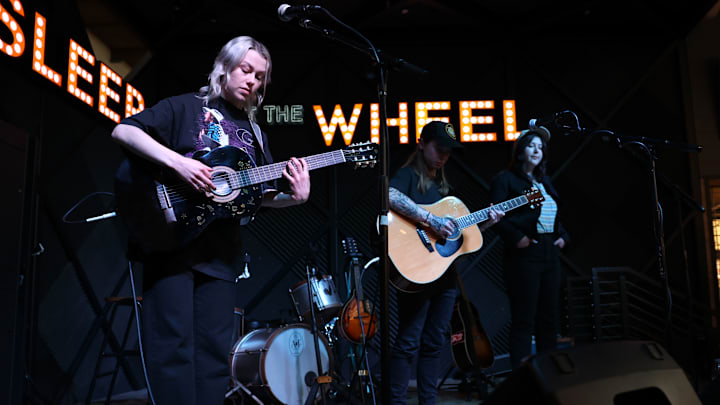SXSW is shrinking in size. One of the biggest outdoor festivals in the world, which has helped artists like Phoebe Bridgers get discovered, a destination event which provided another city outside of NYC and LA to make a mark on the American and world music scene, is going to be cut short by two days.
NPR covered the story on their All Music Considered podcast, reminiscing about all of their great experiences and finds there, talking about how they could see upwards of 35 bands in one day. One of the perks and draws of the festival is that while most outdoor festivals are in stadiums or open fields, SXSW is a festival located in a happening city center, giving the chance for smaller venues to host swarms of people, accounting for more than 25 percent of their annual revenue.
It began in 1987 as a film, interactive media, and music festival, but music is taking the biggest hit with these changes. Some reasons that it might be shrinking are the state of the music industry these days. More and more people and big executives are finding their music online on places like TikTok and Soundcloud, and the “middle class” in the music industry is shrinking.
The future of the SXSW remains to be seen
Recently, there were protests surrounding the insufficient stipend to cover the expenses for smaller bands. More prominent bands, like the rapper Future and Lady Gaga, have been featured in recent years, raising concerns about the corporatization of the SXSW festival.
Ann Powers believes that this might actually be a step in the right direction and towards the proper growth for a festival that was beginning to suffer from “bloat.” One way or another, the music industry is changing, and this is one sign of that shift.
At festivals, where bands are discovered playing in arenas, clubs, and even on the sidewalk curb, the way to discover music is rapidly changing. Artists don’t necessarily need big labels, masses of people, or even seasoned music journalists to find their stuff since people are going right to the source, technologically, and perhaps lacking in community, though it might be.
Will Austin still be known as a music city ten years from now? That remains to be seen. The music festival doesn’t look to be going away, however, and live music, while its importance is shifting, will always be a vital part of the music listening experience.
